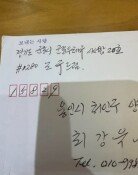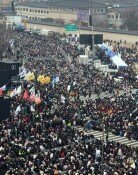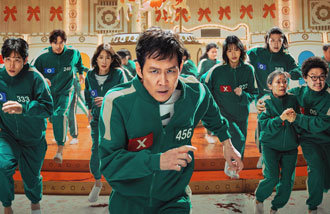Democratic Party pledges to follow its members only
Democratic Party pledges to follow its members only
Posted May. 28, 2024 08:02,
Updated May. 28, 2024 08:02
According to the ‘Central Party Income and Expenditure Summary Table for the First Quarter of 2024,’ recently posted on the Democratic Party of Korea's website, the Democratic Party of Korea's total income from January to March this year was 71.21 billion won, of which 24.72 billion won came from government subsidies. This amount exceeded the 13.29 billion won in party membership fees paid by Democratic Party members.
Under the Political Funds Act, the government provides quarterly subsidies to major political parties, including the Democratic Party. In election years, such as this year, there is also a separate election subsidy. This is intended to protect and foster political parties that represent voters in a representative democratic system. Of course, this budget is funded by taxes paid by all citizens, including non-Democrats. This is why it's so absurd that the Democratic Party is now claiming to be a “member-centered party” and that, in the future, even the Speaker of the National Assembly should be chosen by members of the Democratic Party.
Lee Jae-myung is the most vocal advocate of party centrism in the Democratic Party. The party leader claims that about 20,000 party members have defected since Choo Mi-ae lost the election to be the speaker. “It's not just a matter of a few fandoms,” Lee said last Tuesday. “It's a situation that needs to be looked at fundamentally.” Two days later, he said that the party's organization, management, policies, and authority distribution should align with the spirit of change, adding that it may even be a clash between representative democracy and direct democracy.” This is not just a temporary aftershock from the loss of the speaker election but is intended to change the party fundamentally.
Picking up on Lee's cue, at a two-day workshop for the 22nd National Assembly for elected members held last Wednesday, they claimed, “With 5 million members, the Democratic Party forms a collective intelligence. If we don't call them centrists, who else can we call centrists?” and “Like celebrity fandom, party affiliation is becoming a national trend and culture. If you label them as 'hard-core supporters,' you're not going to find the answer.” They claim ‘the party’s sentiment is the people’s sentiment.’ If they think so, I would like to ask why they didn't rely solely on the party line in the previous general election and why they went for the 'centrist vote.'
During the workshop discussions, Rep. Yang Moon-seok suggested that the party should increase the percentage of party members' votes to 50 percent when selecting candidates for the National Assembly speaker and the floor leader. Honestly, it's up to the Democratic Party to decide how to choose their leader or floor leader. However, the speaker of the National Assembly is the head of the entire legislature, not just the Democratic Party. To decide that position at the whim of the Democratic Party is a violation of the rights of voters who are not members of the Democratic Party but who have faithfully supported representative democracy and party politics with their taxes.
In addition, the strategy that the Democratic Party plans to push through in the 22nd National Assembly as “the will of the party members” includes a number of amendments to the National Assembly Act, such as impeaching prosecutors and ministers, strengthening legislative powers, and shortening the fast-track period. In the end, it seems that the Democratic Party will do what they want to do in the name of party members.
Under the Political Parties Act, a political party is a voluntary organization of people that advances responsible political claims or policies in the people's interest. If the Democrats, who are the most heavily subsidized by taxpayer dollars, are only advocating for the interests of their party and not the Korean people as a whole, they are no different from any other interest group.







